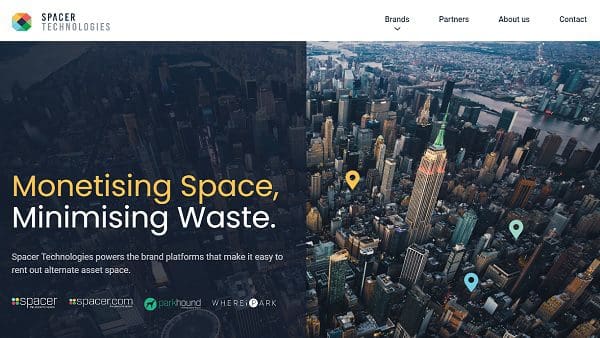
74,000 unused parking spaces in homes, multifamily communities, hotels, and commercial buildings discovered by Spacer represent huge potential for the sharing economy.
Spacer Technologies, the platform powering alternate asset marketplaces across North America and in Australia, today released its initial Spacer Index. The index reveals that Seattle has 74,522 unused parking spaces on an average weekday. These spaces sit vacant during work hours, and at an average monthly cost of $170, represent $12,668,740 in monthly income, or $152,024,880 per year left on the table.
“People in American cities often complain about parking spaces being impossible to find, but these numbers prove that’s just not true,” says Jeremy Zuker, Spacer Technologies’ CEO for North America. “Even in a busy and growing metropolis like Seattle, we couldn’t believe how many spaces stood empty, providing zero income for their owners and no utility to commuters or residents. Luckily, Spacer has the technology to help stop this waste and connect drivers with property owners to everyone’s benefit.”
The index discovered some interesting facts about parking in Seattle. For example, Seattle has a much higher rate of car ownership than San Francisco: over 80% of Seattle residents own cars, and 50% commute by car to work. “This is unsurprising because the city is zoned to favor single family homes, with fewer apartment buildings in the city itself,” says Zuker.
The Spacer Index is based on the total number of spaces in hotels, religious institutions, multifamily properties, single-family homes, and class B and class C commercial buildings in the City of Seattle. Vacancy rates for each of these categories were applied based on public data and a total dollar value was derived.
Zuker continues, “Seattle also has more churches per capita than any other city in the United States, which means many churches have unused spaces much of the time.” Likewise, there is a massive glut of class B industrial space, which skews the number of available spaces. “The official average cost of parking in Seattle is $220 a month, but we rounded this down to $170 based on evidence from Craigslist and other community sources online, so potentially the untapped profits are significantly higher.”
“These unused spaces are a huge boon to the sharing economy,” says Zuker.“Thousands of underutilized spaces in Seattle could be rented to create passive income for owners and affordable parking for drivers. The marketplace is only missing access to this information and the tools to make renting easy and accessible. Spacer platforms have been successfully doing this for years, and we’ve only scratched the surface.”
About Spacer Technologies
Known as the “Airbnb of the Alternate Asset Space,” Spacer powers household brands in the parking (www.parkhound.com.au, www.spacer.com) and self-storage (www.spacer.com.au) verticals. Spacer works with brand name REITs, hotels, commercial and residential property owners to lease out space online, on-demand. Its subsidiary, WhereiPark (WIP) (www.whereipark.com), operates parking marketplaces across 15 metro areas in North America. WIP focuses on the B2B and B2B2C sector and works with brand-name suppliers and national multifamily property owners including Brookfield Properties, UDR Apartments, AvalonBay Communities, and Greystar.






